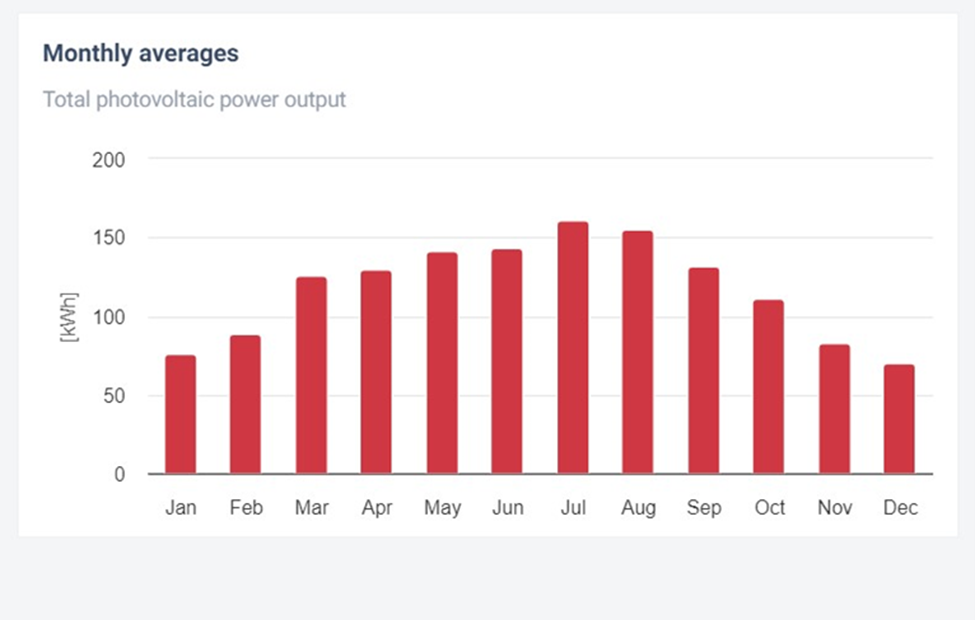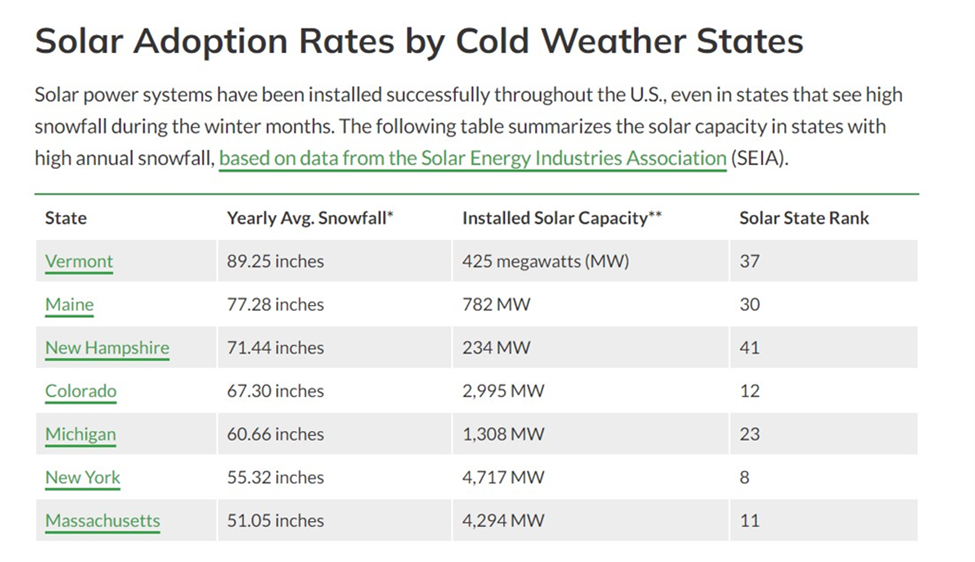Introduction:
One of the most common concerns people have about adopting solar energy is the efficiency and functionality of solar panel systems in winter. While bright and sunny days are the biggest boon to solar power, families contemplating installing solar energy systems are apprehensive about whether their investment bears fruition during winter months.This article dives into the pros and cons of solar panels in winter, including one of the common misconceptions about solar energy, which is that cold temperatures decrease solar power capture.
How Do Solar Panels Generate Power in Cold Weather?
Solar panels absorb the sun’s light, not the sun’s heat, to generate energy. So as long as sunlight hits the solar panel, it will generate electricity. The sun’s photon particles are absorbed by tiny particles on the solar panel’s surface called photovoltaic cells. This absorption of light causes electrons in the panel to move, thereby generating electric current. This current flows through the electric distribution box to power up a facility.
In cold weather, the efficiency of Solar panels actually increases relative to warmer weather due to the change in electron activity. In cooler temperatures, electrons are more often at rest compared to a warmer temperatures; when sunlight hits these electrons, it creates an even larger change in voltage, generating more movement and thus more electric current. Thus, contrary to popular belief, cold temperature actually increases the efficiency of Solar Panels.
On the flip side, research confirms that excessive temperature and heat reduce the energy output from solar photovoltaic systems. The efficiency of a solar panel is inversely proportional to the temperature. When the temperature increases, energy output from solar panels decreases exponentially. Solar panels experience a dip in efficiency around 77 degrees Fahrenheit or 25 degrees Celsius.
When Do Solar Panels Work Best?
As you can see below, summer months have the highest power output while winter months are the lowest.

So, if Solar generation is more efficient in the winter, why does the summer usually create more energy? Well there are two primary factors: Longer daylight hours and fewer blockages from cloud cover and snow.
Since winter months have fewer daylight hours than other seasons, there is often a reduction in solar power generation. Unfortunately, the efficiency of cold weather solar production isn’t enough to offset this key ingredient of daylight hours. In addition, cloud cover or snow that consistently blocks sunlight will reduce efficiency.
In addition to misconceptions about cold weather, there are also some misconceptions about snow’s impact on solar power generation. Many people are concerned that Snow cover will be a major impediment to solar generation. While this can be true, more often than not, Snow slides off or melts from solar panels far quicker than snow on the ground or roofs due to the slick nature of solar parnels. In addition, snow on the ground can actually magnify the sun’s effect because sunlight is reflected off the snow and onto the solar panels. This reflecting effect is called the Albedo phenomenon. According to The Clean Energy Authority, a solar panel surrounded by snow can absorb twice as much light, boosting energy output in the winter months.
Lastly, one of the biggest factors affecting photovoltaic performance, according to research, is the angle of the light falling on the solar panels, which isn’t as direct in winter as that of the summer months. Light direction, coupled with cloud cover and dense morning fog, are the major determinants of decreased energy output during snowfall.
Should I get Solar Panels if my area has long winters?
According to the Solar Market Insight Report 2022, The Solar Energy Industries Association ranks New York and Massachusetts among the top states in the US for solar panel installations in 2022, alongside sunny states such as California, Florida and Arizona. What’s more, the most number of installations in these regions have come during winter months! While this isn’t a definitive reason to get solar panels, it does support the idea that solar parnels can be effective in northern states and winter months.
The high number of solar installations in northern states also underscores another high impact reason to switch to solar, which is rising electricity costs that is prevalent in some of these high-use states. Here is a graph illustrating the solar adoption rates by cold weather states in the US. Despite being one of the states to receive the highest yearly average snowfall, both New York and Massachusetts are two of the top-ranking states for solar adoption in the US.

Effective Management of Solar Panels during Winter
Just like your driveway, your car or just about every aspect of your life, solar panel systems also require some intervention during snowfall season to ensure optimal functioning. Here are a few suggestions for managing your solar panels in areas with snowfall
- Solar panels often have large frames around the panel to prevent wear & tear and to support the panel structure. These frames can cause an accumulation of snow that does not have a passage to melt or slide off. If you live in an area where yearly snowfall is a given, consider installing solar panels without the frames.
- Invest in a solar panel snow rake that enables you to wipe off accumulated snow without damaging the surface of the solar panel systems. One benefit of snow on solar panels is it can act as a cleaning agent.
- During winter, the sun stays low in the sky due to the Earth’s axial tilt and the winter sunlight hits the Earth at a ‘shallow’ angle. So, a steeper angle for solar panels is more beneficial for absorbing sunlight during the winter season. Talk to your solar panel experts to achieve an optimal angle and make the most of your solar panels in the winter months.
Conclusion
While winter months typically produce lower rates of solar power than the summer, it may not be for the reasons you think. Cold weather and snow themselves are not reasons for this reduction in efficiency, but rather the shorter days, sun angles, and cloud cover of winter.
Despite lower efficiency in winter, Solar Panels can still be the right decision for you as an offset to rising energy costs. Solar panel systems are an ecological approach to meet energy requirements at a time when electricity costs in the US are higher than ever before. Come rain, shine or snow, solar panels deliver clean, renewable energy and pave the way for a sustainable lifestyle.
